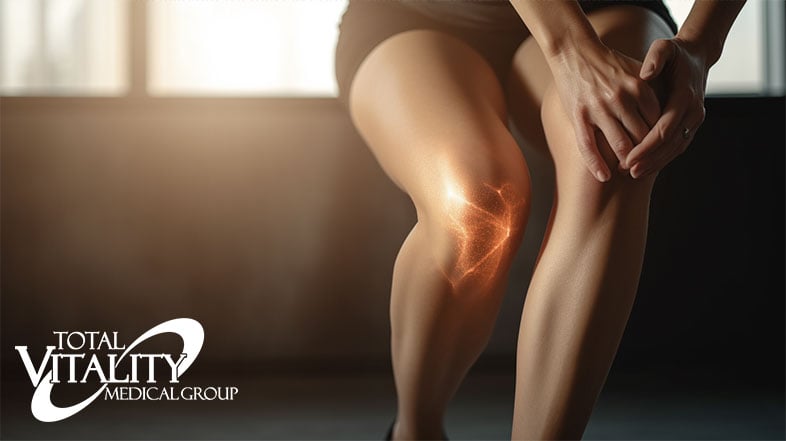Muscle Spasm

Muscle spasms are involuntary muscle contractions (i.e., muscle contractions that are not under your control). “Tight” muscles in your back, neck, shoulders, and legs are muscle spasms. Muscle cramps that occur in athletes during sports or exercise are also muscle spasms. Spasms that develop in your lower leg muscles are often called “charley horses,” and they can be extremely painful. Most muscle spasms seem to occur spontaneously during activity or rest, but there are several underlying factors that may contribute to this musculoskeletal problem. Read on to learn more about muscle spasms and an alternative approach that can help treat and prevent this problem.
Condition Information
Almost everyone experiences muscle spasms at some point in his or her life. The severity of muscle cramps can vary greatly, from mild and annoying to severe and debilitating. Factors that may boost your risk for muscle spasms include:
- Age: Older individuals are more susceptible to muscle spasms due to reduced muscle mass.
- Poor hydration: Athletes who become dehydrated and fatigued in warm weather often experience muscle cramps.
- Pregnancy: Pregnant women experience muscle spasms more often than others.
- Other health conditions: A person with diabetes, nerve problems, liver conditions, or thyroid disorders is more likely to experience muscle spasms.
Other risk factors for muscle spasms include the following:
- Insufficient warmup or stretching prior to athletic activity
- Tight sheets or covers at the foot of your bed
- Maintaining poor posture for prolonged periods
Causes & Symptoms
The list of possible causes of muscle cramps is long, but some of the most common causes of this painful musculoskeletal health problem include:
- Insufficient circulation (i.e., blood flow) to your legs
- Calf muscle overexertion during exercise
- Physical activity in the heat
- Muscle fatigue
- Deficiencies in magnesium and/or potassium
- Deficiencies in calcium in pregnant women
- Nerve impingement or spinal cord injury
- Certain prescription drugs (e.g., Lasix, Procardia, various statins, etc.)
Muscle spasms typically cause a sudden, sharp pain in your affected area. You may also notice a hard lump of muscle tissue beneath your skin. Your muscle spasms may require treatment if they:
- Cause severe discomfort
- Occur frequently
- Fail to improve with self-care techniques
- Occur in combination with muscle weakness or leg swelling
Muscle Spasm Treatment
Muscle spasms and splinting can make it difficult for your doctor to treat the parts of your body that need to be treated.
